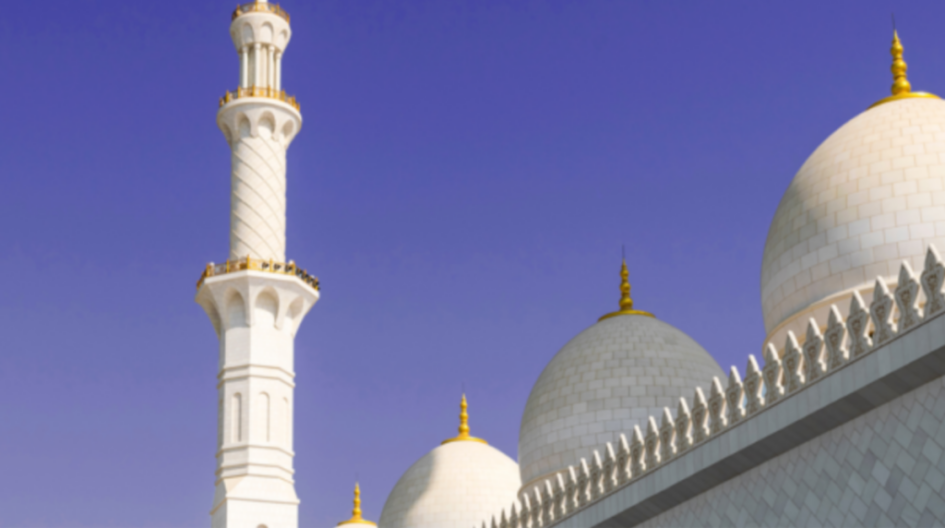The Interview: By John Stapleton
Only a few short years ago the Australian Federation of Islamic Councils, the country’s leading Sunni Muslim organisation, was drenched in controversy, day after dismal day.
The Federation, reported to be sitting on more than $60 million in assets, became a household name for all the wrong reasons, a byword for scandal in the misuse of public funds. “Like a script from a mafia movie” blared one headline.
Now, facing an internal election, the President who claims credit for bedding down the organisation and getting it out of the news, is speaking out publicly for the first time.
Bad blood is slippery.
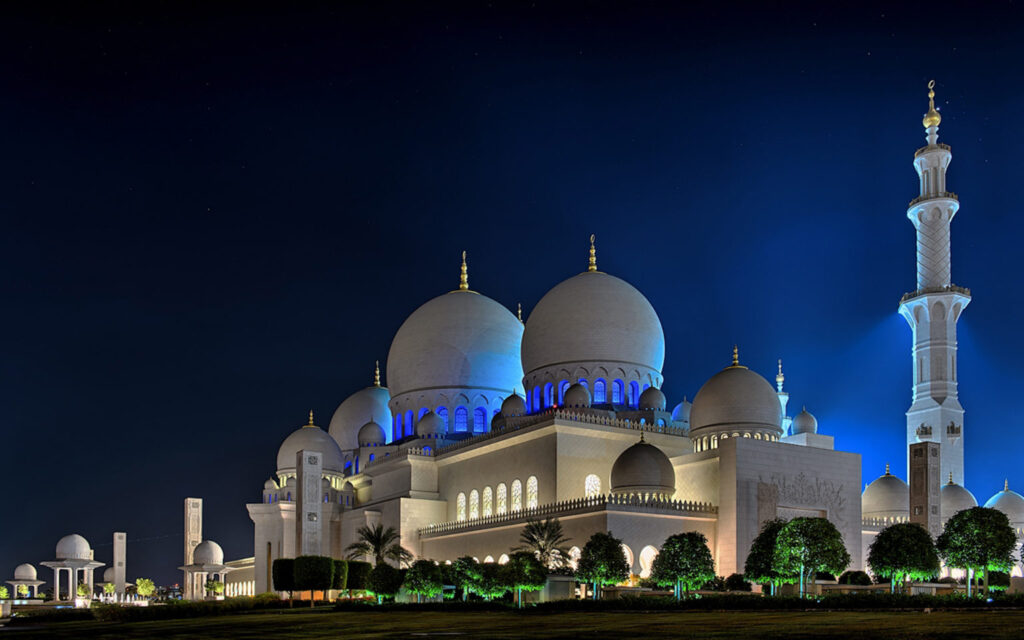
Current AFIC President Dr Rateb Jneid was elected in 2017 after an extremely messy internal dispute which included one group raiding and occupying the Sydney offices and appeals to the NSW Supreme Court, which ruled the raid illegal.
In a scathing assessment NSW Supreme Court Justice Robert McDougal said it was appalling the organisation was focused on internal squabbling instead of “the rise, fueled by populist politics and government policies, of anti-Muslim sentiment.”
The previous election was a three-way contest.
Keysar Trad, a figure of controversy in Australia since he sued and gained a public apology from high profile conservative Alan Jones in 2005 after the shock jock called Lebanese Muslims “mongrels” and “vermin”.
Trad had been appointed interim President before being at one point locked out of his own office.
Also in the running was Professor Shahjahan Khan, an academic from the fledgling Muslim community, who saw off two arson attacks on the city’s only mosque and declared the Federation needed to be rebuilt from the ground up by a younger generation of Muslim candidates.
And outside runner, former President of the Western Australian Islamic Council Rateb Jneid.
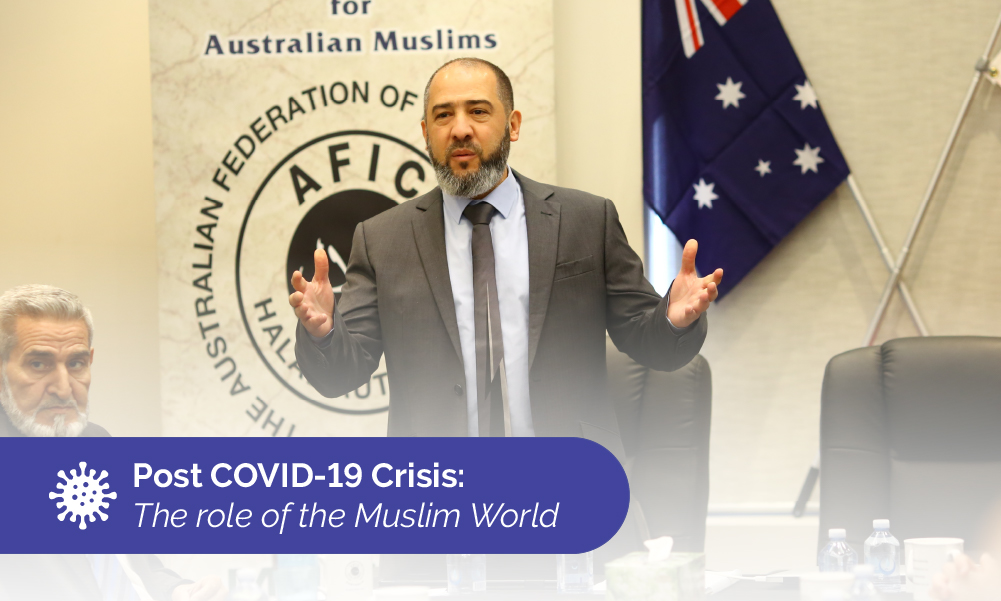
This time around Trad has ruled himself out of the race, declaring he is not giving “oxygen to rumours” and for once in his long career intends to remain out of the media spotlight.
Jneid’s most likely main opposition is thought to be Talal El Cheikh, a western Sydney businessman and property developer.
The story begins when the Federation of Islamic Council’s flagship Malek Fahd Islamic School in Sydney’s south-west, had its $19 million of annual Federal funding revoked in 2016 with an audit discovering the siphoning off of millions of dollars.
The country’s peak Sunni Muslim organisation was ordered to repay $22 million.
Federal Education Minister Simon Birmingham weighed in: “Every single taxpayer dollar that goes into Australian schools should be used exclusively for the benefit of schoolchildren, not funneled off to help any other external organisation, not mismanaged due to poor governance, not subject to internal feuding, and these are the types of problems that have beset this college over a long period of time. Enough is enough.”
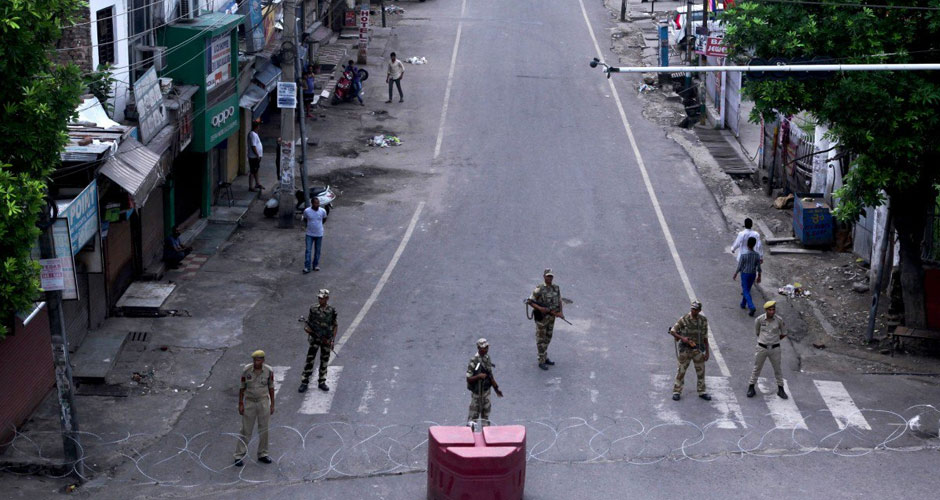
The multiple scandals afflicting the Federation fueled developing anti-Muslim sentiment in the broader Australian community and directly undermined the government’s hotly disputed claims that Australia was the most successful multicultural society on Earth. A rotting pig’s head was dumped at an Islamic school gate in Brisbane, stirring ample coverage in the tabloid press.
The Islamic School of Canberra and the Islamic College of South Australia also lost their federal funding, in good part due to their links to the Australian Federation of Islamic Councils.
The blizzard of hostile publicity came at a time when the conservative government was doing its best to stoke community concerns in the wake of its reentry into Iraq as one of America’s closest allies. At its height, Australia was dropping more than 100 bombs a month on Iraq, particularly around Mosul, of significant religious import with its location overlapping the ancient city of Nineveh.
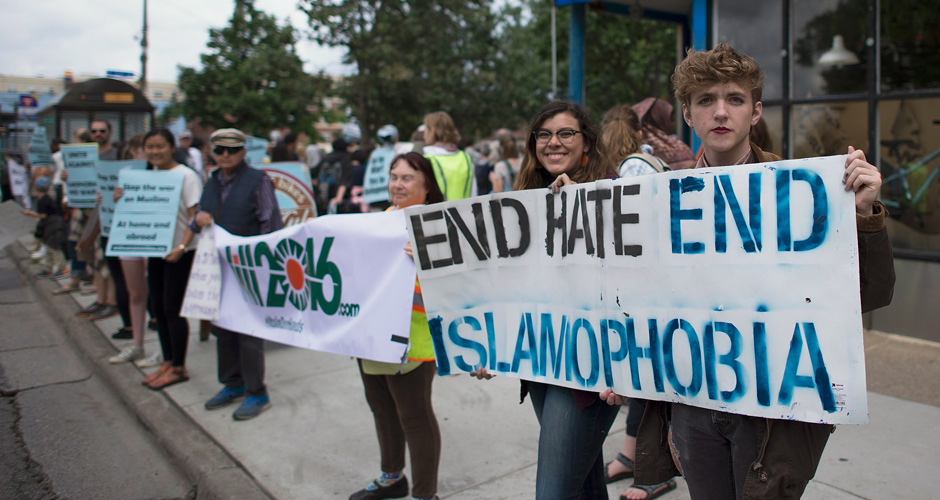
While the nation’s tabloids badged their terror pages “The Death Cult”, on the other side of the divide the Muslim community overwhelmingly regarded Australia’s interventions in the Middle East and the bombing of a Muslim country as terrorism in and of itself.
AFIC administered millions of dollars’ worth of halal certification. Well known supermarket brands including Vegemite and Cadburys Chocolates pay for halal certification for their Muslim customers.
Halal funding was proving a subject of considerable angst in the broader Australian community.
The Australian Federation of Islamic Councils retains a significant presence in the Halal market, although the organisation lost its accreditation for Indonesia, Malaysia and Singapore.
“AFIC has been working to reclaim accreditation for these markets. It is a convoluted drawn out process. The Gulf markets have very stringent rules, they require a separation of advisory and certification bodies to avoid conflict of interest and they do regular audits of the accredited bodies.
“Halal certification has become cost intensive because of all the standards that need to be met. Today’s standards look at food safety and hygiene as well as methods of slaughter.

“If it bears the AFIC stamp, then it has gone through the highest standard of testing, you can trust AFIC Halal to be 100% Halal. Our Halal section includes a Sharia committee that combines the skills and experience of several Imams.”
Despite issues impacting his family’s reputation in the broader community Jneid fought for his beloved WA Islamic Council. Within a few months he had successfully lobbied Muslim leaders around Australia and was elected AFIC president.
And then something amazing happened: AFIC disappeared from the headlines.
Arguably his greatest success.
Fast forward to the present and Jneid is up for reelection.
Jneid has not given press interviews since taking the Presidency. But now he is keen to face his critics, ticking off his achievements.
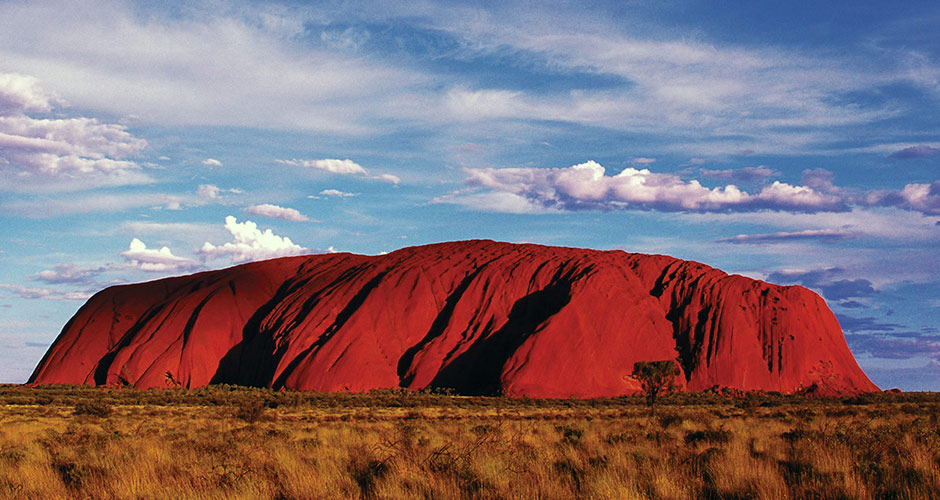
Of most import to the Muslim community was the reparation of Commonwealth funding for schools, with strong preferences for Islamic schools over the state system.
Asked what happened with Malek Fahd Islamic school, Dr. Jneid says all disputes have been settled and the government has restored funding to the school, their rents were adjusted and everything is back to normal. “One of my proudest achievements is to play a role in restoring the funding of Malek Fahd so that our children, our students, can have certainty and stability.”
In the midst of the turmoil the Australian Federation of Islamic Council’s banks, carrying millions in debt, threatened to close their accounts.
Jneid says: “The various infighting led our bank to say: enough is enough, if you guys don’t stop it, we will stop taking your business. But again, Alhamdulillah, with the help of Allah, right after we settled our disputes, we started pouring in as much money as we could to repay the loans.
“Our loans, the AFIC loans were taken by previous committees who were desperate to fund school building projects and make sure that there are more classroom seats in Muslim schools for our kids.
“I can tell you that during my time, Alhamdulillah, we managed to cut our loans by more than half, we went from owing the bank $10 million to less than $5 million.
“This is a great blessing from Allah. I have to say here to all our brothers and sisters, try to avoid taking bank loans.”
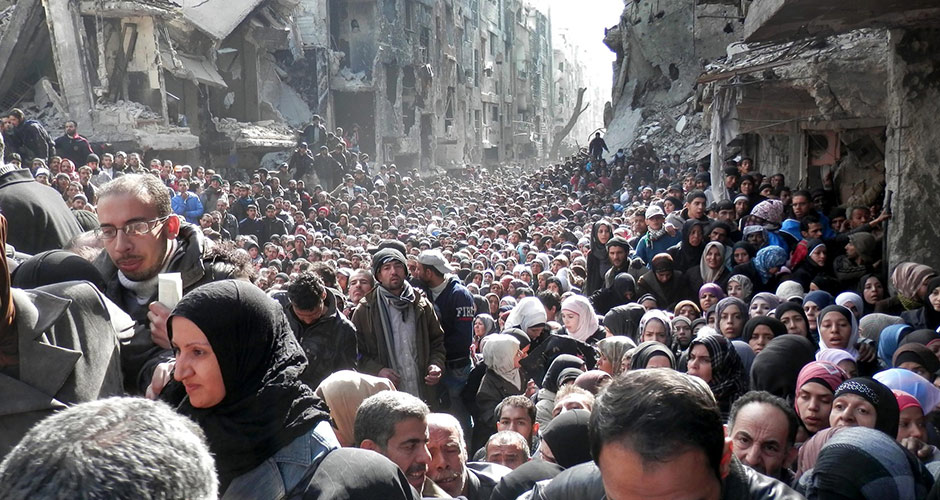
Asked about a number of controversial emails now circulating which contain allegations of corruption and nepotism, Jneid responded:
“Unfortunately, every time a member, a society, a council president, or a former employee do not get their wish-list approved, they start making accusations of favouritism and corruption. This has been the unfortunate history of AFIC for at least the past 20 years or so.
“I would like to assure the public that all AFIC financial affairs are structured in a manner approved by all the regulatory authorities. All our books are audited by an external auditor who also has the authority to check all our Finance Committee activities.
“AFIC is the most transparent and most democratic organisation in the Muslim community. The existence of such allegations is a testament to our success. Only successful people are envied and face attacks. Every single allegation is being responded to in detail.”
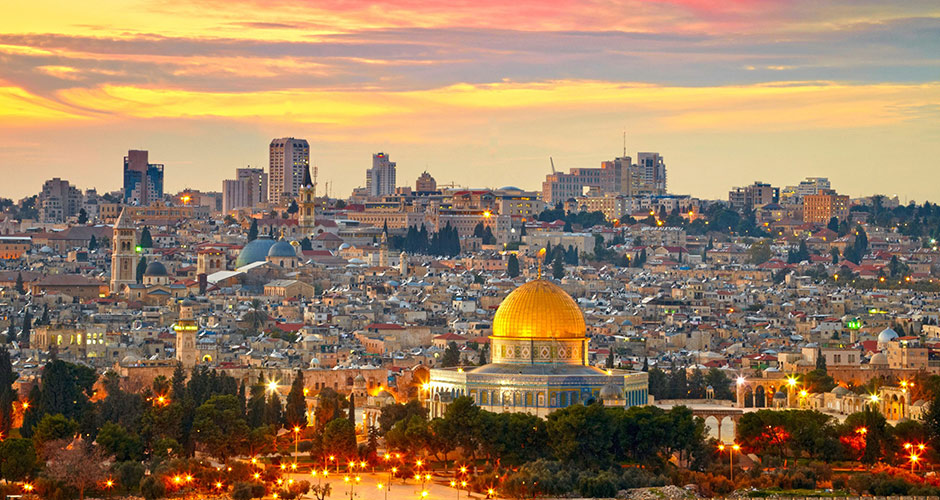
In a closing pitch to his constituents and a tilt to the future, Dr Jneid says:
“The Australian Federation of Islamic Councils is the peak body for Australia’s Muslims, AFIC has thrived for 56 years, it is older than I am and in shaa Allah, it will continue to grow and thrive long after I leave.
“Today, AFIC is facing one of its gravest challenges and at the same time, its greatest opportunity to unite the community and work with everyone to make sure that every Muslim in Australia is accorded every opportunity to be safe and prosperous.
“In five years, I see AFIC as a major contributor in the significant decision making in Australia at a national level. I don’t mean just on issues impacting the Muslim community, but rather, issues impacting our nation Australia. I believe that Islam can help Australia grow in every material respect.”
Written and compiled by John Stapleton.

